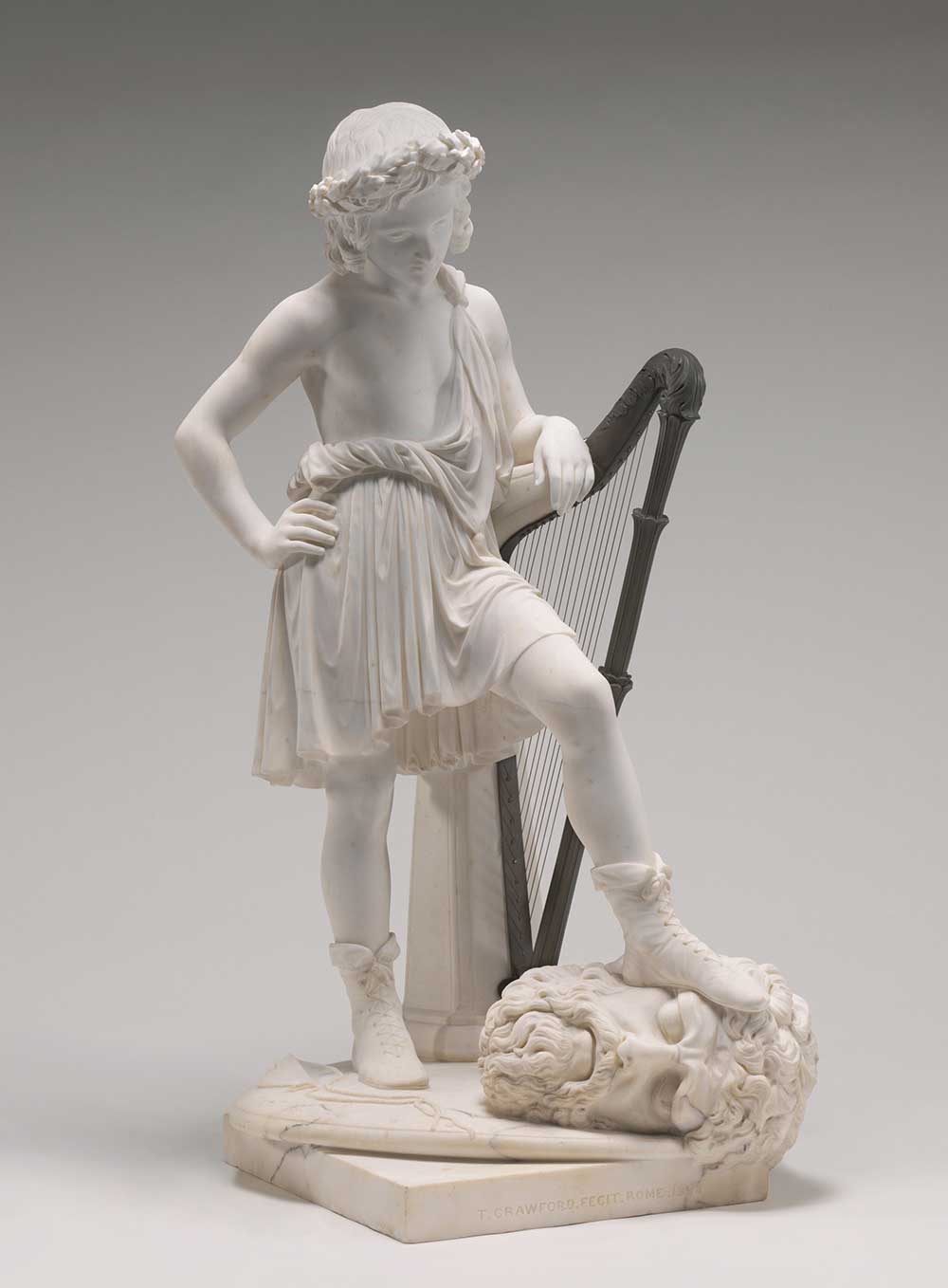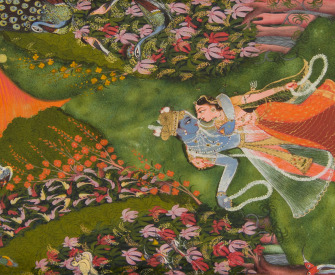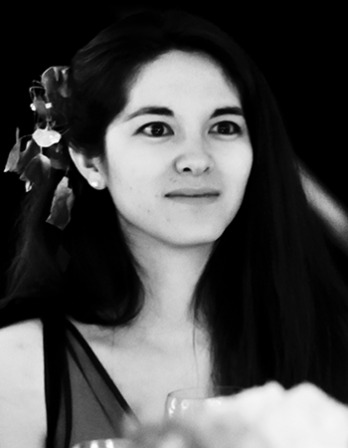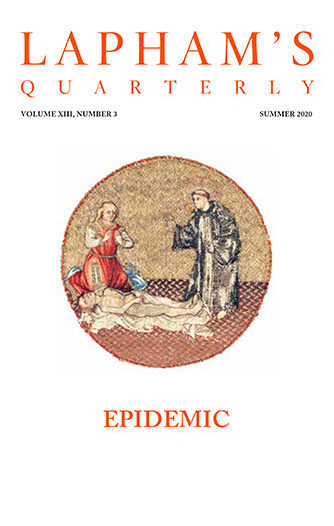[Enter Lady Happy and one of her attendants]
Servant: Madam, you being young, handsome, rich, and virtuous, I hope you will not cast away those gifts of nature, fortune, and heaven upon a person which cannot merit you?
Lady Happy: Let me tell you, that riches ought to be bestowed on such as are poor, and want means to maintain themselves; and youth, on those that are old; beauty, on those that are ill-favored; and virtue, on those that are vicious. So that if I should place my gifts rightly, I must marry one that’s poor, old, ill-favored, and debauched.
Servant: Heaven forbid.
Lady Happy: Nay, heaven doth not only allow of it, but commands it; for we are commanded to give to those that want.
[Enter Madam Mediator]
Madam Mediator: Surely, madam, you do but talk, and intend not to go where you say.
Lady Happy: Yes, truly, my words and intentions go even together.
Madam Mediator: But surely you will not encloister yourself, as you say.
Lady Happy: Why, what is there in the public world that should invite me to live in it?
Madam Mediator: More than if you should banish yourself from it.
Lady Happy: Put the case I should marry the best of men, if any best there be; yet would a married life have more crosses and sorrows than pleasure, freedom, or happiness? Nay, marriage to those that are virtuous is a greater restraint than a monastery. Or should I take delight in admirers? They might gaze on my beauty and praise my wit, and I receive nothing from their eyes nor lips; for words vanish as soon as spoken, and sights are not substantial. Besides, I should lose more of my reputation by their visits than gain by their praises. Or, should I quit reputation and turn courtesan, there would be more lost in my health than gained by my lovers; I should find more pain than pleasure. Besides, the troubles and frights I should be put to, with the quarrels and brouilleries that jealous rivals make, would be a torment to me; and ’tis only for the sake of men when women retire not. And since there is so much folly, vanity, and falsehood in men, why should women trouble and vex themselves for their sake? For retiredness bars the life from nothing else but men.
Madam Mediator: Oh yes, for those that encloister themselves bar themselves from all other worldly pleasures.
Lady Happy: The more fools they.
Madam Mediator: Will you call those fools that do it for the gods’ sake?
Lady Happy: No, madam, it is not for the gods’ sake, but for opinion’s sake. For can any rational creature think or believe the gods take delight in the creature’s uneasy life? Or did they command or give leave to nature to make senses for no use or to cross, vex, and pain them? For what profit or pleasure can it be to the gods to have men or women wear coarse linen or rough woolen, or to flay their skin with haircloth, or to eat or saw through their flesh with cords?
Madam Mediator: But when the mind is not employed with vanities nor the senses with luxury, the mind is more free to offer its adorations, prayers, and praises to the gods.

David Triumphant, by Thomas Crawford, 1848. National Gallery of Art, Washington, DC, gift of Ian and Annette Cumming.
Lady Happy: I believe the gods are better pleased with praises than fasting, but when the senses are dulled with abstinency, the body weakened with fasting, the spirits tired with watching, the life made uneasy with pain, the soul can have but little will to worship. Only the imagination doth frighten it into active zeal, which devotion is rather forced than voluntary, so that their prayers rather flow out of their mouth than spring from their heart, like rainwater that runs through gutters, or like water that’s forced up a hill by artificial pipes and cisterns. But those that pray not unto the gods or praise them more in prosperity than adversity, more in pleasures than pains, more in liberty than restraint, deserve neither the happiness of ease, peace, freedom, plenty, and tranquillity in this world, nor the glory and blessedness of the next.
Madam Mediator: In my opinion, your doctrine and your intention do not agree together.
Lady Happy: Why?
Madam Mediator: You intend to live encloistered and retired from the world.
Lady Happy: ’Tis true, but not from pleasures! For I intend to encloister myself from the world to enjoy pleasure, and not to bury myself from it; but to encloister myself from the encumbered cares and vexations, troubles, and perturbance of the world.
Madam Mediator: But if you encloister yourself, how will you enjoy the company of men, whose conversation is thought the greatest pleasure?
Lady Happy: Men are the only troublers of women, for they only cross and oppose their sweet delights and peaceable life; they cause their pains but not their pleasures. Wherefore those women that are poor, and have not means to buy delights and maintain pleasures, are fit only for men, for having not means to please themselves, they must serve only to please others. But those women where fortune, nature, and the gods are joined to make them happy were mad to live with men, who make the female sex their slaves. But I will not be so enslaved, but will live retired from their company. Wherefore, in order thereto, I will take so many noble persons of my own sex as my estate will plentifully maintain, such whose births are greater than their fortunes and are resolved to live a single life and vow virginity. With these I mean to live encloistered with all the delights and pleasures that are allowable and lawful. My cloister shall not be a cloister of restraint but a place for freedom; not to vex the senses but to please them.
From The Convent of Pleasure. Cavendish was born in Essex to wealthy but untitled parents, and at the age of nineteen joined the court of Henrietta Maria. The following year, in 1644, Cavendish accompanied the queen into exile in Paris. There she met the royalist commander William Cavendish, whom she married in 1645; through him she met such intellectuals as Thomas Hobbes, Henry More, and René Descartes. Her discussions with these men formed the basis for her Philosophical Letters, in which she and a fictional interlocutor explore the philosophers’ ideas.
Back to Issue






